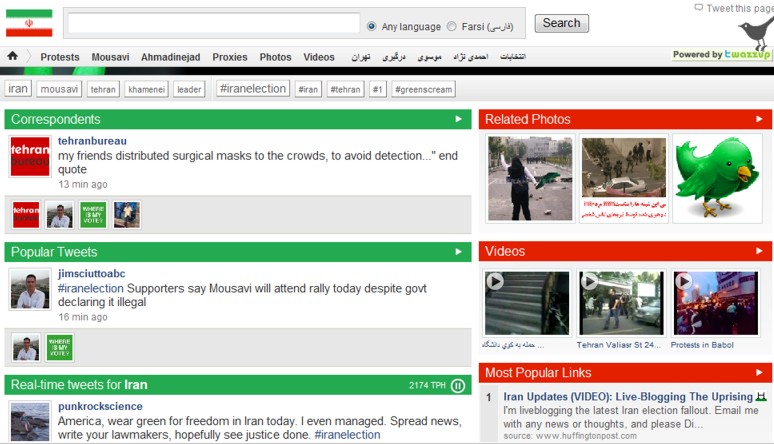
Some time ago, when talking about Twitter, I mentioned an astronaut using Twitter to share his journey to space – @Astro_mike, or Mike Massimino, a NASA astronaut, mission specialist for STS-125. You can see Mike along with the rest of the team on the NASA website. Receiving real-time tweets as he prepared for launch, as he described his experiences in space, and in his readjustment to gravity on earth, he offered a unique perspective, much different to a newspaper article or even interview.
Although not as thrilling as the real-time follow, I decided to share selected tweets throughout his journey. Since the latest tweet is on top, you’ll have to start at the bottom.
Finished a physical exam with the doctors, all is good, I am cleared to resume driving a car, flying, and light exercise3:34 AM May 28th from TwitterBerry
Going to our crew return ceremony, watch it live at 4PM central at www.ustream.tv/nasa2explore6:34 AM May 27th from TwitterBerry
Woke up with slightly sore back and lower legs, my muscles are re-adjusting to gravity11:24 PM May 26th from web
Getting re-adjusted to gravity, let go of a small bag of groceries and must have expected it to float, luckily no damage1:26 PM May 26th from web
On day 12 on a night pass over India I say 2 shooting stars entering the atmosphere below me, streaks of light below, I made 2 wishes11:41 PM May 25th from web
favorite moment on last full day was night pass over Australia with thunderstorms and city lights below and universe above, a heavenly view11:37 PM May 25th from web
Could not land for 2 days so spent most time looking out windows – this was a gift – listening to music looking at Earth and stars for hours11:34 PM May 25th from web
From orbit: got a call from President Obama, it was a great event for our crew and very thoughtful of the President11:49 PM May 21st from web
From orbit: Just saw Orion’s nebula in the night sky – the sights make all the hard work and risk worthwhile for me7:35 AM May 21st from web
From orbit: Night pass over Australia, the city lights give stunning signs of life on our planet within the darkness of nighttime7:34 AM May 21st from web
From orbit: Just a video conference with my family, it was great to see them7:33 AM May 21st from web
From orbit: As I closed my eyes to sleep last night I thought “these eyes have seen some beautiful sights today”12:39 AM May 21st from web
From orbit: Flying over the Pacific Ocean at night there were some thunder storms, it is so cool to see lightning go off below the clouds10:33 PM May 20th from web
From orbit: The stars at night in space do not twinkle, they look like perfect points of light and I can clearly see the milky way galaxy10:33 PM May 20th from web
From orbit: Viewing the Earth is a study of contrasts, beautiful colors of the planet, thin blue line of atmosphere, pure blackness of space8:08 AM May 20th from web
From orbit: We see 16 sunrises and sunsets in 24 hrs, each one spectacular as the sun lights up the atmosphere in a spectrum of colors8:06 AM May 20th from web
From orbit: The Earth is so beautiful, it is like looking into paradise8:04 AM May 20th from web
From orbit: Getting ready for bed, sleeping in space is cool, tie down your sleeping bag and float inside of it, very relaxing6:27 PM May 19th from web
From orbit: Eating chocolates in space, floating then in front of me then floating and eating them like I am a fish6:26 PM May 19th from web
From orbit: At the end of my spacewalk, I had time to just look at the Earth, the most awesome sight my eyes have seen, undescribable10:43 PM May 18th from web
From orbit: Getting more accustomed to living in space today and getting ready for our big rendezvous with hubble12:16 AM May 14th from web
I’m going to put my spacesuit on, next stop: Earth Orbit!!11:11 PM May 11th from TwitterBerry
Final check with the doctors, getting ready for breakfast. We launch today!!8:52 PM May 11th from TwitterBerry
I’ll tweet when I can from orbit, but it might not be much, follow us after the launch 24/7 on NASA TV, www.nasa.gov/ntv and NASA twitter9:59 AM May 11th from web
Just got up, met with the doctors for a routine checkup, now will start a final review of the spacewalks with my crew – 2 DAYS FROM LAUNCH8:34 PM May 9th from web
Just finished dinner with my crew and our spouses, this is our first night in quarantine in florida after 5 quarantine days in houston10:26 AM May 9th from TwitterBerry
I don’t know about you, but I got enormous satisfaction out of the succinct, personal tweeting by @Astro_Mike.
You can read Mike’s journal on the NASA site. You can also read the crew profiles and interviews on the site.
I think it would be a unique way to teach about space, don’t you? Do you know any other real-time Twitter-documented journeys that could be used for learning?


